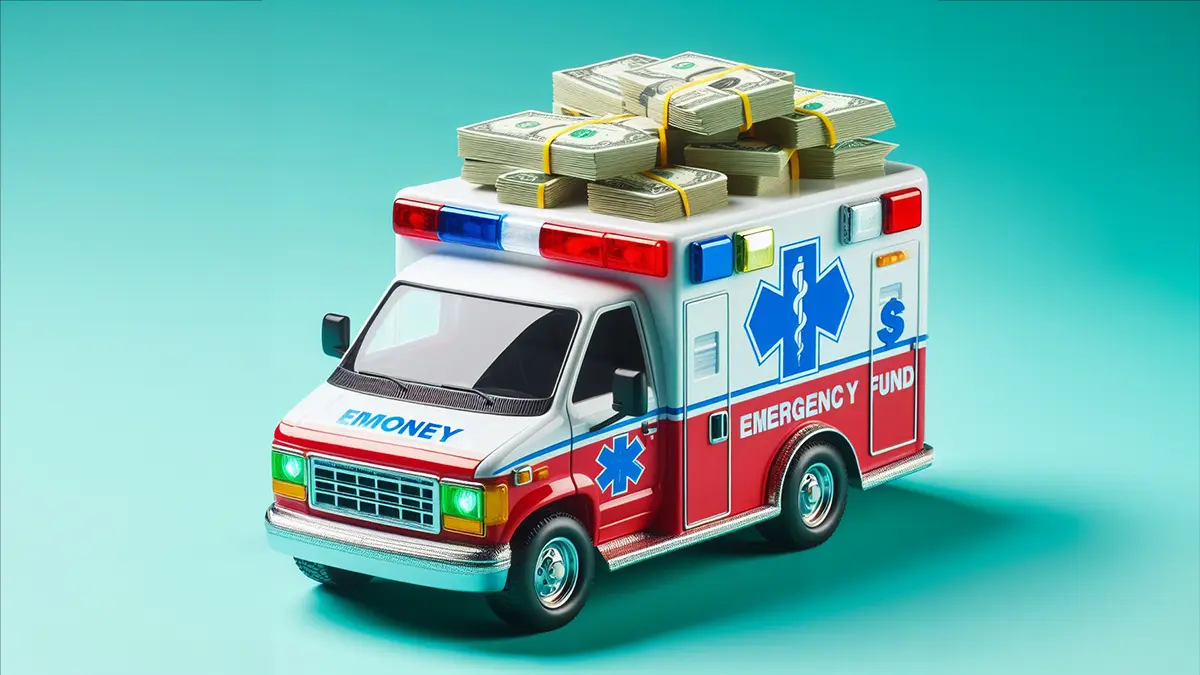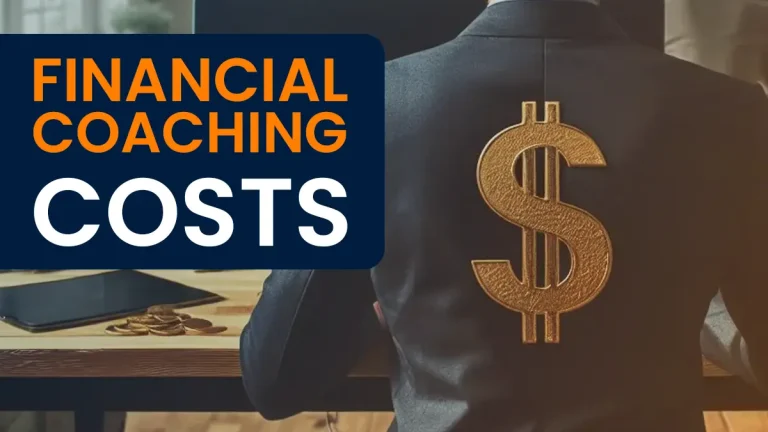Building an emergency fund was one of the hardest things I had to do when starting out in the world of work.
But it is by far one of the most important and most rewarding things I accomplished.
I was on a low wage, it took a long time and I desperately wanted to spend the money on a new car, a new drum set or pretty much anything else.
I’m glad I didn’t. The reason you need an emergency fund is probably not quite what you think.
What is an emergency fund?
An emergency fund is a pot of cash set aside for unexpected expenses. It’s usually 3-6 months of your living expenses saved in a checking account or an easy-to-access savings account.
An emergency fund is a financial safety net – a stash of cash set aside for those “uh-oh” moments life loves to throw our way.
Whether it’s a sudden car repair, a medical emergency, or an unforeseen vet bill for your pet goldfish, the emergency fund stands ready to rescue you from the clutches of financial stress.
Think of it as the buffer between you and Murphy’s Law – that unwritten rule stating that anything that can go wrong, will go wrong.
And trust me, things will go wrong.
Your emergency fund is the core of your financial stability.
Yes, it’s there for emergencies. But it’s what that money represents that is more important:
- It represents your discipline to put money aside and maybe never spend it, should no emergencies arise (they probably will, though!).
- It represents your commitment to staying out of debt. Because if you have high-interest debt, that will surely deplete your emergency fund.
- It represents your state of mind. Your willingness to take whatever life throws at you from both a financial standpoint and a mental one.
What are the benefits of building an emergency fund?
Of course, the key benefit is that you will have the ability to pay for unexpected expenses – veterinary, dental, health, car-related, job loss, the list is endless.
But by far the most profound impact I have seen is just how critical an emergency fund is for reducing money stress.
Money stress affects 52% of Americans every year (Bankrate, 2023). The key sources of that stress usually involve:
- Mounting debt on credit cards & loans.
- Paycheck-to-paycheck living, with monthly anxiety about whether you can pay the bills.
- Sudden unexpected costs that were not budgeted for.
A great deal of this money stress can be alleviated with an emergency fund:
- You are less likely to resort to loans & credit cards if you have cash safely stored in the bank. If that money isn’t there, you can find yourself slipping into a cycle of debt with compounding interest.
- Whilst living paycheck-to-paycheck is not advisable, it is certainly more bearable if you have a safety net. If one month you’re unable to make ends meet, you can sleep easy knowing that your emergency fund can cover the shortfall.
- Emergency funds are for unexpected bills, and these are sometimes a result of traumatic events (for example, a veterinary bill for a beloved pet). These life incidents are stressful enough – having the cash to pay for such bills gives you one less thing to worry about.
Emergency funds are your psychological safety blanket.
Don’t walk through life with this burden of being on the verge of bankruptcy. Whether you feel it or not, it eats away at you.
I always recommend people start their personal finance journey by building a small emergency fund as it’s easy to implement, it’s a single goal you can work towards, and most importantly, it brings about a great deal of stress-relief.
See our personal finance flowchart for more guidance on what to do with your money.
How much should you save?
Here is the key dilemma. Cash is eroded by inflation.
Every year, your untouched emergency fund gets smaller as the buying power of that cash decreases. Even if it is in a savings account, the interest is only mitigating part of the harmful effect of inflation.
So, while everyone says 3-6 months of expenses is a good rule of thumb, you can decrease this in certain circumstances to focus on other financial goals, such as investing.
At Money Stocker, we believe anyone can become wealthy with the right financial strategy. By far the best way to grow wealth is through investing in the stock market – in low-cost index funds.
Saving too much money in cash is inadvisable as it is a drag on your wealth.
I temper my recommendation based on how financially stable and sensible a client is. To simplify somewhat, the more stable they are and committed to becoming financially independent, the smaller the emergency fund needed.
Questions you should ask yourself include:
- How stable is your income and outgoings?
- What are your monthly obligations relative to the amount of income?
- How flexible are your outgoings? Could you reduce them in case of job loss?
- How is your impulse control?
- How many dependents do you need to support with your emergency fund?
- How much is your partner able to save in an emergency fund (if applicable)?
- How passive can you be when it comes to investing in low-cost index funds?
- How likely are you to have an emergency? Some events like medical, dental or car-related can (sometimes) be somewhat anticipated.
In summary – how financially stable are you?
You can potentially save less if you have smaller outgoings, fewer dependents, and better impulse control.
Our calculator below can give you an idea of how much to save (but ultimately, it comes down to you).
Common mistakes and pitfalls
Saving up an emergency fund is a daunting task. As we mention above, many recommend you save up to 3-6 months of your expenses – perhaps even more.
The key reason I see people fail is that they set themselves unrealistic goals.
If a single mother is struggling to make ends meet each month, it’s unrealistic to ask for 6 months of savings. That might take them a long, long time.
It’s better to break down the goal into two parts:
- Start by saving just 1 month of your living expenses in a checking account or high interest savings account.
- Then, focus on other pressing issues like high-interest debt (discussed below).
- When you have a bit more financial stability, work up to 3 months of your expenses saved in cash.
Two other common pitfalls I see include:
- Investing the money. The stock market is a turbulent place. There is no guarantee you will have a positive sum in your account if or when you need the funds. Moreover, it often takes a while to sell the holdings and receive the funds to your checking account. Emergency funds should be in cash or a savings account that is fairly liquid.
- Not prioritizing high-interest debt. I do always tell clients to start with a small emergency fund. It is not financially sensible to start with a 6-month emergency fund if you have high-interest debt mounting. Prioritize paying down the debt before working on the large emergency fund.
The Emergency fund challenge

Saving money is necessary. But let’s be honest, it’s often difficult & dull.
Why not make it fun? The emergency fund challenge is an accountable way to get up to $5,000 in savings.
You (and your partner too) can print off this downloadable sheet and cross off a number each time you save the amount written in the square.
What’s great about this challenge is there are no rules.
Don’t go from top to bottom, left to right. Save whatever you can, whenever you can.
Cross numbers off randomly & fill in the squares however you like. Skip a week or a whole month without saving if you need to.
There are no dates on the calendar and there is no pressure to hit the goal. The only person responsible and accountable for hitting the goal is you.
But I promise, it will be extremely satisfying to cross off that last number.
Why is the challenge for $5,000? It’s a nice number to start with. It may be more or less than you need, but regardless, it’s a good amount of money that can cover a lot of emergencies.
Our advice is to print this and stick it somewhere where you see it every day.






